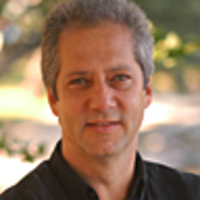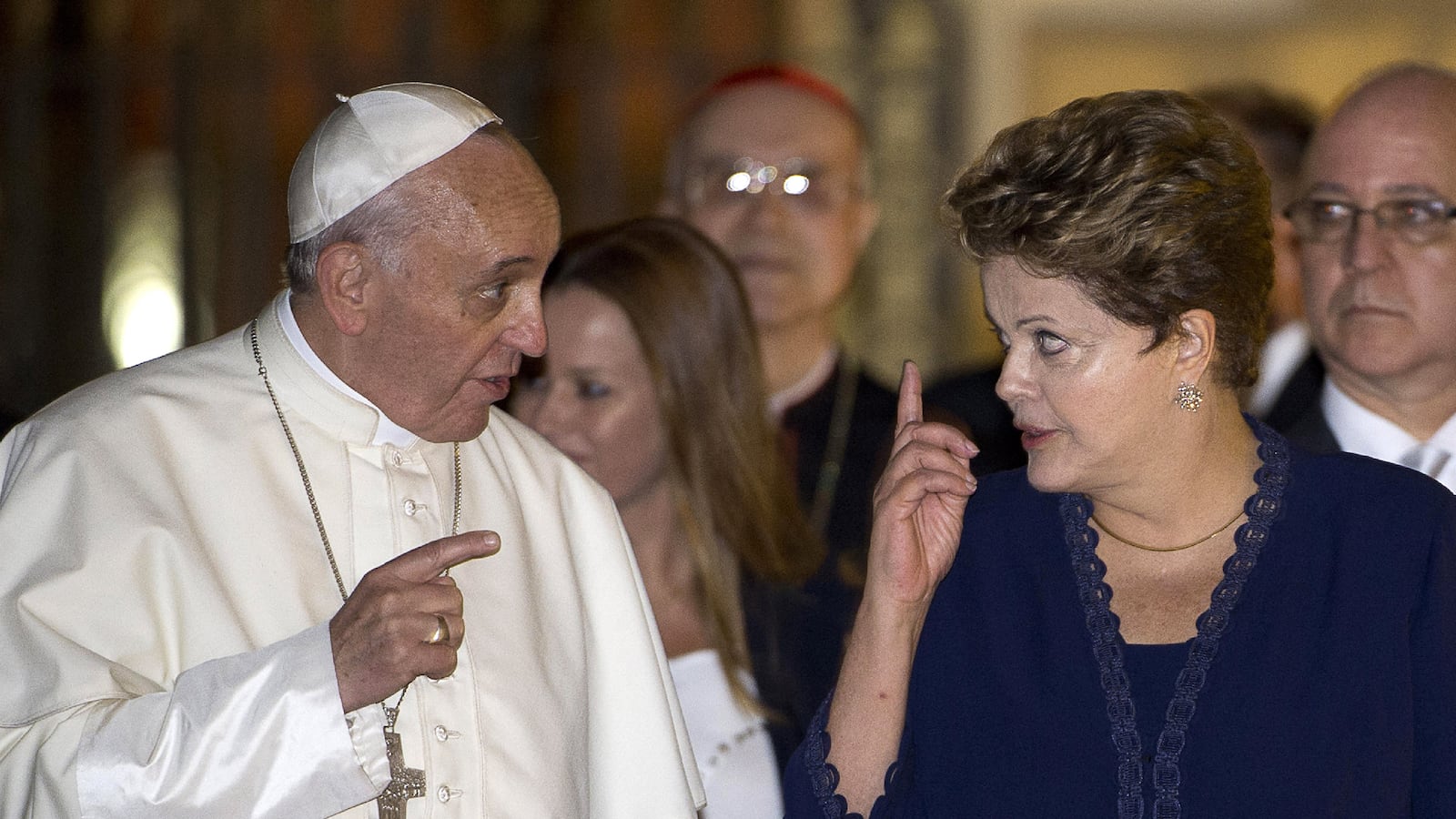When Jorge Mario Bergoglio's name emerged from the white smoke over St. Peter's Basilica on March 13, excitement swept Latin America. After all, the region is home to 41 percent of the world's Catholics, far and away Rome's largest flock.

But more than a new pushpin on the religious atlas, the rise of the first pope from the Americas—the first non-European pontiff in over 1,000 years—brought a new sensibility to a church urgently in need of renovation. All the more so because the Argentine-born Jesuit chose the name Francis, the saint revered for his simple vestments and a lifelong dedication to the poor.
And since symbol is substance in matters of religion, Francis's arrival in Brazil on Monday to kick off the global phase of his papacy crowned the Latin America trifecta.
True, Brazil was on the Vatican's agenda when Benedict XVI was pope and Bergoglio still an unsung prelate from the New World. But at a time when sexual-abuse scandals, financial mismanagement, and wavering convictions are winnowing the fold and eroding Rome's authority, the rise of Francis may be the biggest thing that's happened to the 1.2 billion–strong Roman Catholic congregation in decades.
Humility is part of his appeal. Upon being chosen, Bergoglio seemed genuinely surprised and raised a collective chuckle when he announced from the balcony of St. Peter's that he hoped the college of cardinals would be forgiven for having selected a leader "nearly from the end of the world."
He astonished his followers days later by washing and kissing the feet of inmates at a juvenile-detention center in Rome. The ritual, which reenacted Jesus's tribute to his all male disciples, was all the more remarkable given that two of the prisoners were women. And yet it was an act Bergoglio had performed again and again as archbishop of Buenos Aires.
He went on to draw comment by hailing Muslims during Ramadan from Lampedusa, the Italian island where many African refugees bound for Europe have washed up. He publically contradicted a priest who refused to give communion to a single mother, saying, “There are no such thing as a single mother, only mother and child." And he raised eyebrows again by suggesting that everyone was worthy of divine blessing. "The Lord has redeemed all of us, all of us, with the blood of Christ: all of us, not just Catholics," he exclaimed. "Even the atheists."
Such gestures have played well to the fold and energized dissidents in the church, but also rankled conservatives, many of whom wondered aloud if Francis was a closet proponent of liberation theology. The left-leaning strain of Catholicism that mingles Marxist encomiums with teachings from scripture once flourished in Latin America, including among the Argentine clergy.
As a young Jesuit, Bergoglio was influenced by prominent liberationist priests. And to this day, some of his most scathing words are reserved for the free-market economy, an arrangement he derided as "savage capitalism."
"We have created new idols," he said in a recent speech. "The worship of the golden calf of old has found a new and heartless image in the cult of money and the dictatorship of an economy which is faceless and lacking any truly humane goal.”
Such words have electrified dissidents in Latin America, such as Brazil's Leonardo Boff, a former Franciscan friar and outspoken critic of church dogma who was condemned to year of "obedient silence" (by no less than Cardinal Joseph Ratzinger, years before he turned pope) and eventually left the priesthood. "This is a breakaway pope," Boff declared recently to a Brazilian reporter, here in Portuguese. Under Francis, liberation theology "will become more evident," he said. "Once they said it was a Marxist theology. Now it's a Christian theology. This changes the atmosphere in the church."
Don't hold your breath. As archbishop of Buenos Aires, Bergoglio toed the church's traditional stand against homosexual matrimony and spoke out against President Cristina Kirchner's initiative to legalize same-sex marriage. He has shown no sympathy for the use of contraception, legalizing abortion, and ordaining women as priests.
Franics disappointed rebel nuns of the Leadership Conference of Women Religious, who had clashed with Pope Benedict XVI over church doctrine that only male clergy can say mass. "We just wonder ... how much the pope knows about us. I doubt that he followed closely our case when he was in Argentina,” said Sister Mary Deacon.
Still, Francis is hardly the doctrinal hardliner that many church discontents have painted him to be, much less a collaborator with autocrats. He flatly denied suggestions that he looked the other way when two young activists priests under his wing in the Jesuit order were arrested and tortured during the darkest days of the Dirty War. His defense was backed by many outspoken Argentines, including Nobel laureate Adolfo Peréz Esquivel.
Francis later issued a collective apology to Argentine clerics for "not doing enough" to protest priests during the dictatorship. He also has taken pains to strike a balance in the hypercharged ideological battles that swept his native country during and since the brutal 1976–1983 dictatorship.
The church, he said, "acted like any institution that has saints and sinners," he once told his longtime friend and compatriot Rabbi Abraham Skorka. "There were Christians who died in guerrilla warfare, and Christians who tried to save people, and Christians who became repressors and thought they were saving the country."
Such temperance may disappoint Catholics anxious for more sweeping changes in Rome. But in a troubled church where silence and the veil of infallibility have long been the rule in Rome, the Latin American pontiff's humility and candor are a refreshing new beginning.






